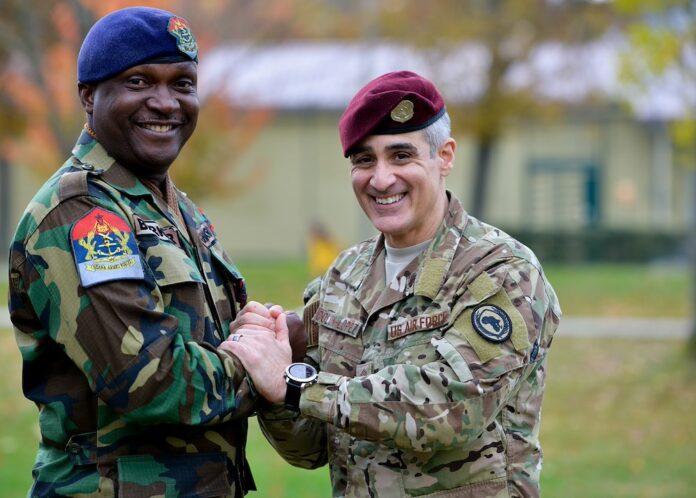WASHINGTON (ChatnewsTV) — U.S. Marine Corps General Michael Langley, commander of U.S. Africa Command (AFRICOM), outlined the U.S. military’s updated strategy for Africa during a digital press briefing on Thursday. The new approach emphasizes African-led, U.S.-enabled partnerships to address regional security challenges, including terrorism, transnational crime, and the effects of climate change.
General Langley, who recently completed a tour across North and East Africa, said the AFRICOM strategy is rooted in the National Security Strategy set by President Joe Biden. “Our efforts in Africa are partnership-centric, with African countries leading and the U.S. providing support,” Langley noted. The updated approach reflects the complexities of Africa’s security landscape, from extremist threats in the Sahel to violent groups like al-Shabaab in East Africa.
Langley highlighted the importance of listening to African partners, saying that collaboration is key. “Whether combating violent extremist organizations or dealing with the consequences of climate change, we first listen, learn, and then develop collaborative solutions,” he said.
AFRICOM’s new strategy also involves a comprehensive approach that includes defense, diplomacy, and development, or the “3D” model. General Langley emphasized this approach as essential for creating long-term stability on the continent. “Through defense cooperation, development programs, and diplomatic initiatives, we aim to strengthen our partners’ capacity to manage security and crises,” he explained.
During his recent travels, General Langley visited Morocco, Algeria, Tunisia, and Libya, where he underscored the importance of unity in countering regional terrorism threats. He also emphasized continued support for Somalia in its battle against al-Shabaab, praising the Somali government’s determination. “President Hassan Sheikh Mohamud is optimistic, and so are we,” Langley said, referring to Somalia’s ongoing fight against the terrorist group.
As AFRICOM adjusts to new realities, including the recent U.S. withdrawal from Niger, Langley mentioned the command’s focus on West Africa, where extremist groups have been spreading. “We are working closely with Cote d’Ivoire, Ghana, and Benin to ensure stability in the region,” he stated.
The strategy also includes a cautious watch on other threats, including potential collaboration between Somalia’s al-Shabaab and Yemeni Houthi rebels in the Red Sea. “We are concerned and monitoring the situation closely,” Langley remarked.
With the shift in global dynamics, including growing influence from Russia and China in Africa, Langley affirmed that the U.S. remains committed to maintaining strong partnerships on the continent. “We don’t give ultimatums,” he said, “but we do offer a value proposition grounded in shared values and mutual respect.”




